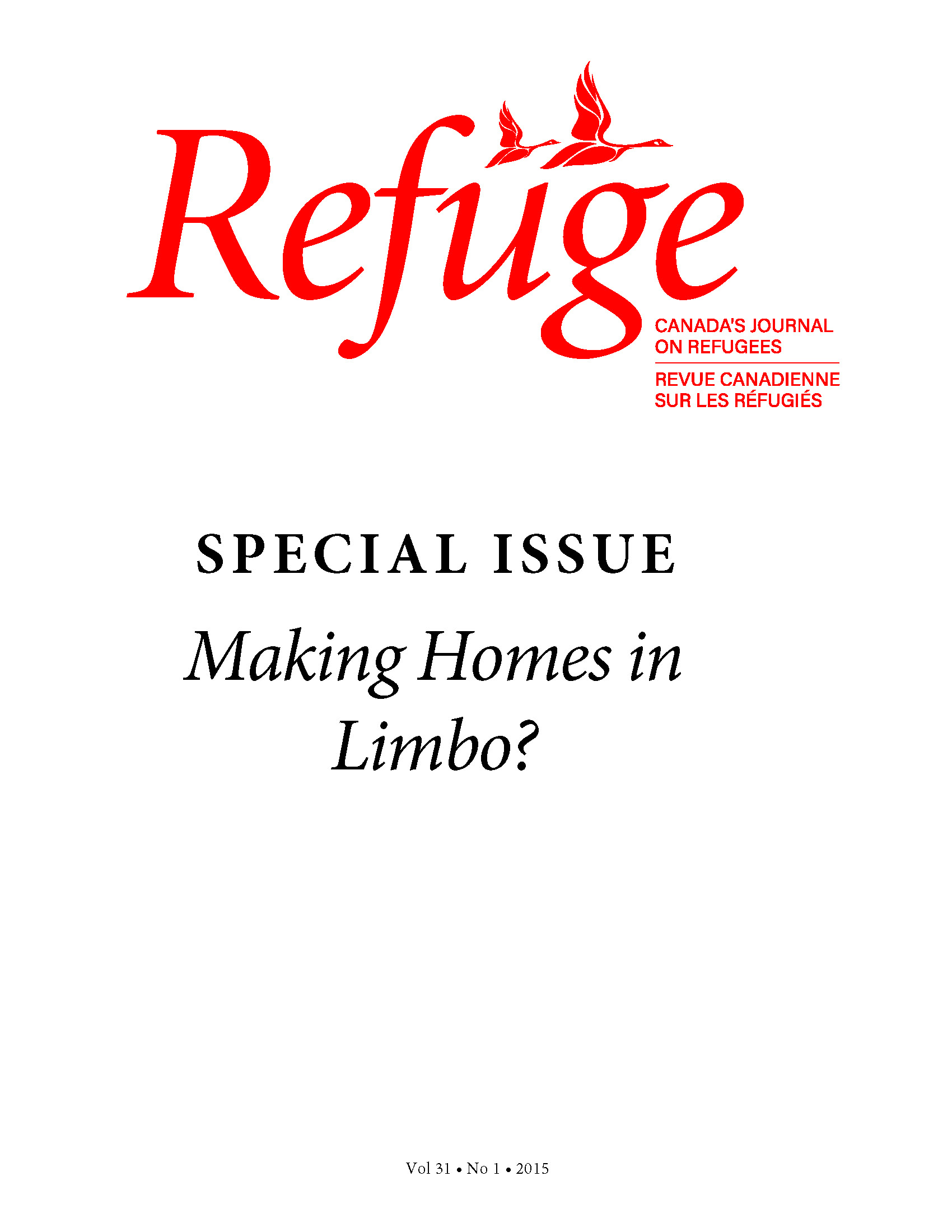“Durable Solutions,” Transnationalism, and Homemaking among Croatian and Bosnian Former Refugees
DOI:
https://doi.org/10.25071/1920-7336.40139Keywords:
Croatia, Bosnia and Herzegovina, Serbia, durable solutions, transnationalism, homemaking, former refugees, integration, repatriation, minority return, ethnicityAbstract
This article proposes that the UNHCR-supported “durable solution” programs for former refugees from Bosnia and Herzegovina and from Croatia were at odds with the actual exilic experiences of former refugees. It introduce homemaking as an essential aspect of a successful durable solution and proposes supplementing the usual ethno-politicized understandings of home in the specific context with analyses of the process of homemaking at different scales—house (dwelling), community (the wider space of settlement containing natural, cultural, social, and economic aspects) and nation. The article also argues that repatriation and local integration in the country of first asylum—two allegedly distinct and opposite solutions to refugee crises—should be viewed as intertwined processes within a broader transnational context. It is concluded that their combination brought a durable solution to refugee predicaments in the specific case.
Metrics
Downloads
Published
How to Cite
Issue
Section
License
Copyright (c) 2015 Jasna Čapo

This work is licensed under a Creative Commons Attribution-NonCommercial 4.0 International License.
Refuge authors retain the copyright over their work, and license it to the general public under the Creative Commons Attribution-Non Commercial License International (CC BY-NC 4.0). This license allows for non-commercial use, reproduction and adaption of the material in any medium or format, with proper attribution. For general information on Creative Commons licences, visit the Creative Commons site. For the CC BY-NC 4.0 license, review the human readable summary.







